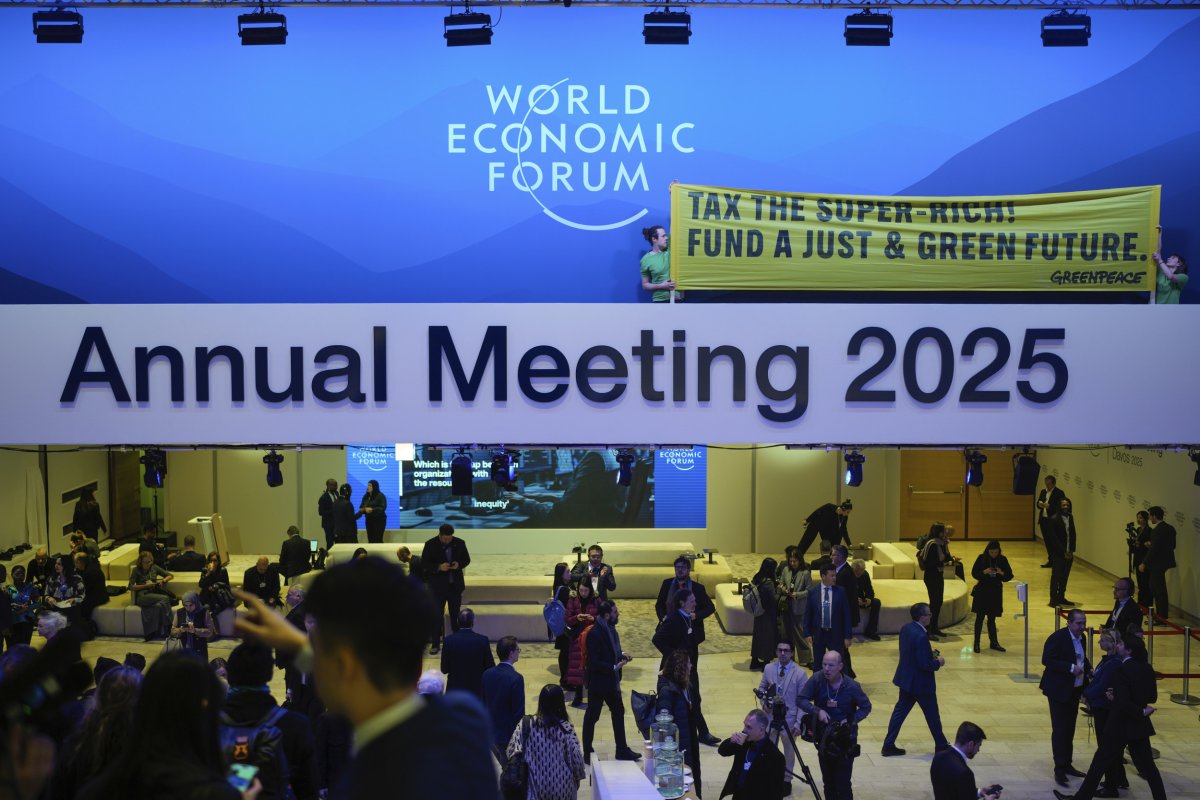-
Best Landing Spots For Shedeur Sanders On Day 3 Of NFL Draft - 17 mins ago
-
Can Seahawks turn dynamic QB Jalen Milroe into the next dual-threat star? - 20 mins ago
-
Family files first lawsuit over deadly roof collapse in Dominican Republic nightclub - 30 mins ago
-
Most arrested during USC, UCLA Israel-Hamas war protests won’t be charged - 49 mins ago
-
Deported 2-Year-Old May Not Have Had ‘Meaningful’ Legal Process: Judge - 58 mins ago
-
LIV Golf Mexico City: Crushers GC, Ripper GC share team lead after Round 1 - about 1 hour ago
-
Procession brings Pope Francis to St. Peter’s Basilica ahead of Vatican funeral - about 1 hour ago
-
California to introduce new license plate sequence next year - about 1 hour ago
-
Every Quarterback Taken Ahead of Shedeur Sanders in 2025 NFL Draft - 2 hours ago
-
Magic narrowly defeat Celtics to cut Boston’s series lead to 2-1 - 2 hours ago
Davos Focus: Guterres, AI Risks, and Trump’s Trade Tariff Plans
The World Economic Forum’s (WEF) Wednesday gathering in Davos, Switzerland will aim to spotlight a keynote address from the U.N. chief, António Guterres, the economic growth prospects of countries China and Russia, President Donald Trump’s upcoming trade tariffs and the challenges posed by artificial intelligence.
Why It Matters
Guterres, a longtime advocate for stronger climate action, has faced pushback from Trump. Analysts and climate activists are anticipating the U.S.’s response to his remarks at the WEF.
Prominent voices, including the CEO of startup Groq, will dive into the potential and the peril of AI, with concerns mounting over its ability to act autonomously and make decisions that could pose existential risks to humanity.
Markus Schreiber/AP
What To Know
Top scientists and government officials have already expressed alarm over AI’s rapid development.
Experts warn that AI’s long-term planning capabilities could lead to unintended consequences if left unchecked.
Trump’s rhetoric on defense spending, meanwhile, is likely to continue drawing attention, especially as the U.S. pressures Europe to contribute more to collective security.
Is Trump Investing in AI?
A central topics at this year’s WEF is artificial intelligence (AI), particularly the concept of artificial general intelligence (AGI)— machines capable of performing a wide range of humanlike tasks.
In a speech the previous day, Trump emphasized a joint venture aimed at investing up to $500 billion in AI infrastructure.
The partnership—involving Oracle, SoftBank, and OpenAI (the maker of ChatGPT)— will focus on building massive data centers and boosting electricity production in Texas to meet the energy demands of AI technologies.

Markus Schreiber/AP
How Will the Trump Factor Affect Global Economic Growth?
European and Southeast Asian leaders will also take center stage in Davos, where the economic strategies of major regions will come under scrutiny.
Spanish Prime Minister Pedro Sánchez is set to address the WEF as European leaders navigate the shifting dynamics of global trade.
The European Union, a critical U.S. trading partner, is recalibrating its relationship with Trump, who has threatened tariffs on goods from both allies and adversaries alike.
Trump’s comments on Tuesday, in which he appeared to mistakenly group Spain with the BRICS nations (Brazil, Russia, India, China, and South Africa), sparked some confusion in Europe, particularly given Spain’s recent strong economic performance within the EU.
Malaysia’s Prime Minister Anwar Ibrahim will address the gathering following a significant agreement with Singapore to create a new economic zone aimed at spurring job growth and attracting international investment.
The deal is seen as a strategic move to strengthen economic ties within the region and bolster Malaysia’s economic outlook amid global uncertainties.
What Happens Now
As global power dynamics shift and economic challenges mount, the debates and decisions made at this year’s WEF could have profound implications for the future of international relations, technological advancement, and climate policy.
And while AI’s promise to revolutionize industries is undeniable, questions about its regulation and potential risks loom large over the conversation in Davos.
This article includes additional reporting from The Associated Press
Source link






























